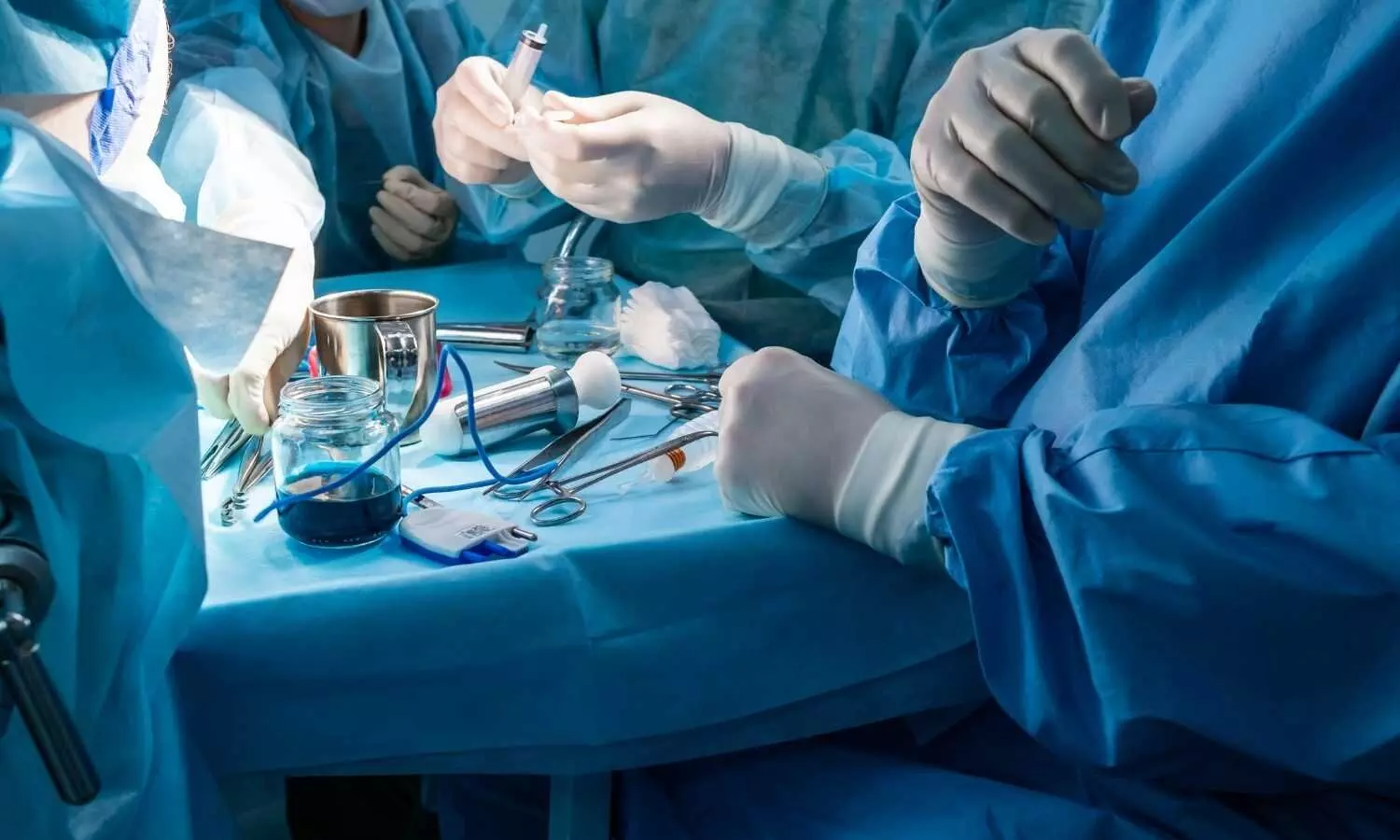Sahyadri Hospital Performs MICAS on Patient with Triple Vessel CAD and Reduced Ejection Fraction

Pune: A 48-year-old man from Pune has successfully undergone a minimally invasive triple vessel coronary artery bypass surgery at Sahyadri Super Speciality Hospital, Deccan Gymkhana. The procedure, conducted on April 28, 2025, was performed by Dr. Smruti Hindaria, who is the first female cardiac surgeon in Pune to use this technique.
The patient, an IT professional referred to as Mr. Ramesh Korde (name changed), had been experiencing severe breathlessness for nearly three months. Medical tests, including coronary angiography, revealed that he had triple vessel coronary artery disease, involving significant blockages in all three major arteries of the heart. He also had a reduced ejection fraction of 35%, well below the normal range of 60%, indicating a weakened heart function.
Although his condition was serious, doctors deemed surgery possible. However, the patient was hesitant to undergo traditional open-heart surgery, which typically involves a full sternotomy and longer recovery.
Taking into account his age, overall health, and heart anatomy, the medical team recommended Minimally Invasive Coronary Artery Surgery (MICAS) as an alternative.
“In MICAS, we avoid opening the chest through a midline cut,” said Dr. Smruti Hindaria, Consultant Cardiothoracic Surgeon. “Instead, we operate through a 2-3 inch incision made on the left side of the chest, navigating between the ribs without cutting through the breastbone. This approach significantly reduces trauma, pain, and blood loss leading to a much faster recovery.”
The technique differs from conventional bypass surgery, which typically involves a 10-12 inch incision, cutting through the sternum, and 6 to 8 weeks of recovery. “We use long, specialized instruments through a small thoracotomy to gently retract muscle tissue and access the heart,” Dr. Hindaria explained. “Since the bones remain untouched, most patients recover in 10 to 15 days, experience minimal pain, and require a shorter hospital stay. The scarring is barely visible.”
Following the surgery, Mr. Korde was moved out of the ICU within 48 hours and discharged from the hospital in five days. “Such accelerated recovery is rare in traditional bypass cases, where hospitalization may extend to 7-10 days, with longer rehabilitation timelines,” the surgical team stated.
The surgery was supported by a multidisciplinary team, including Dr. Shantanu Shastri (Cardiac Anesthetist), perfusionists, physician assistants, and scrub nurses. “We conduct a comprehensive preoperative evaluation that includes coronary angiography, 2D echocardiography, high-resolution CT scans of the heart, and pulmonary function tests,” said Dr. Shastri. “These helped us assess not only the heart’s anatomy and artery accessibility but also lung capacity, which is crucial for single-lung ventilation during surgery.”
Doctors clarified that MICAS may not be suitable for all patients. Individuals with extremely low ejection fractions (below 25%), enlarged hearts, or who require additional procedures like valve repairs are typically not considered ideal candidates. Age can also be a factor, particularly for patients over 75 with weaker bone structure.
“This technique is not just about smaller incisions it represents a mindset shift in cardiac care,” said Dr. Hindaria. “We are moving toward a future where even more refined techniques, such as robotic-assisted and endoscopic cardiac surgeries, will redefine recovery and patient experience.”


